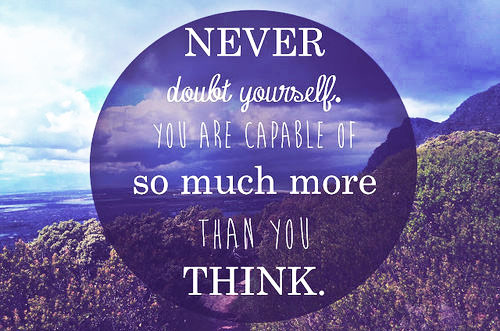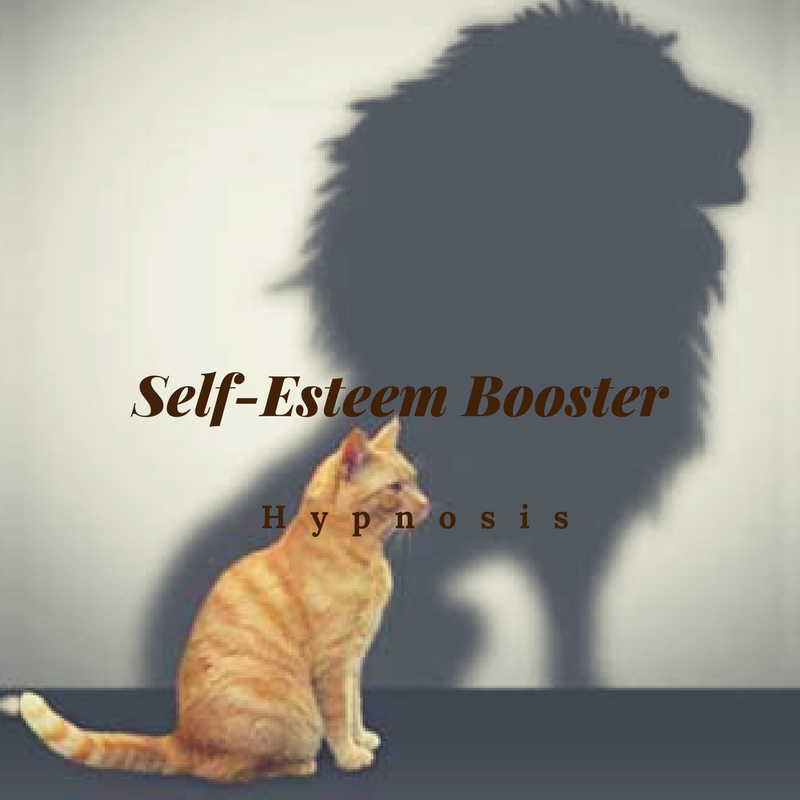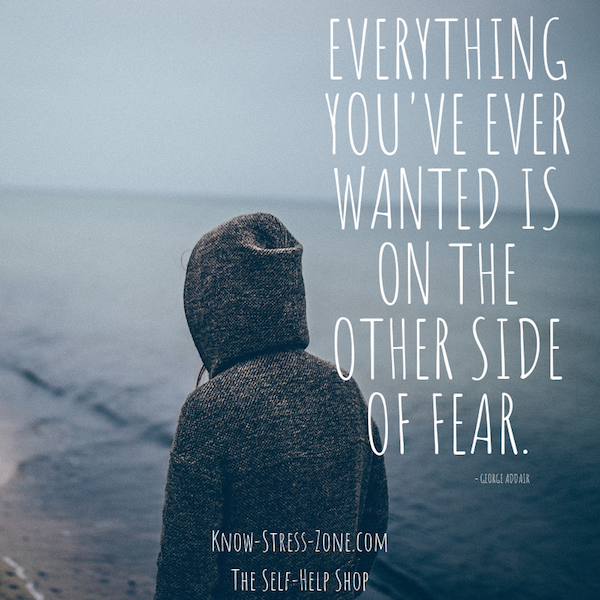Are You a People Pleaser at Work?
Are you a people pleaser at work? If you're like me and have been trying hard to beat low self-esteem, I have a harsh reality to share with you. (It comes from a good place, though.)
Complaining Does You No Good
I get it. It feels good to complain and let off a little steam from time to time. I'm not saying you should never complain, and I'm not saying that there isn't a time and a place when you should launch a legitimate complaint. What I'm trying to tell you is that it's often a waste of time to whine and complain about your situation. Complaining without action and a desire to bring about change does you no good and actually hurts your self-confidence.
When you focus on complaining, you're embracing the role of a victim, and that's not a powerful role at all. It's a passive, accepting-what's-dealt-to-you kind of role.
So, let's take some action and beat low self-esteem!
 |
Are you a people pleaser at work?
Are you the office nice-guy, or the office doormat? There’s a balance between being a good person and being a pushover, and you can even capitalize on being the nice person and turn into your superpower. It’s all about setting and maintaining your boundaries, being true to yourself and staying in your power. Assess yourself against these classic signs of being too nice in the workplace and see what you can do about it.
1. You can’t say no.
Do you find yourself saying yes to things you don’t have time for, that may not be part of your job, and that could cause your work to suffer? If you’re a chronic ‘helper’ and spending your time bailing other people out, it’s only going to end badly for everyone. Your colleagues don’t learn to take responsibility for their tasks, and you risk looking like a poor performer.
Learn to prioritize your work and push back the requests, unless there’s a crisis and it’s all hands to the pump.
2. You’re always saying sorry.
If you’re constantly apologizing, you are signaling weakness and negativity. Turn it around and say thank you instead. So if you can’t make a meeting instead of saying ‘Sorry, I can’t make it,’ try starting with ‘Thank you for inviting me.’ It changes the whole dynamic and the energy immediately, and you’ll stop feeling guilty!
3. You don’t want to upset people.
This issue can take several forms, from not giving your view in meetings to not being able to give critical feedback. You can build respect and trust for being straightforward and honest about what you think. Keep it polite, and it’s unlikely people will get upset.
4. You’re always putting yourself down.
Even if you’re joking, being self-deprecating is a bad habit for the office environment. Sure, you don’t want people to see you as arrogant, but neither do you want to be seen as a joke. If you don’t take yourself and your work seriously you can’t expect your colleagues and executives to either. Think about what sort of image you want to have in the professional setting and work to build that.
Aim to be seen as reliable, honest, trustworthy and hardworking and manage your language and behavior around that. That means setting boundaries by being clear about what you will and won’t take on, being positive about yourself and your contribution and open in your dealings with colleagues and clients. It’s fine to be nice but make sure you balance it out with being assertive!
Are you the people pleaser at work?
25 Go-To Strategies
1. Groom yourself and beat low self-esteem. This seems like such an obvious one, but it’s amazing how much of a difference a shower and a shave can make in your feelings of self-confidence and for your self-image. There have been days when I turned my mood around completely with this one little thing.
2. Dress nicely. A corollary of the first item above … if you dress nicely, you’ll feel good about yourself. You’ll feel successful and presentable and ready to tackle the world. Now, dressing nicely means something different for everyone … it doesn’t necessarily mean wearing a $500 outfit, but could mean casual clothes that are nice looking and presentable.
3. Photoshop your self-image. Our self-image means so much to us, more than we often realize. We have a mental picture of ourselves, and it determines how confident we are in ourselves. But this picture isn’t fixed and immutable. You can change it. Use your mental Photoshopping skills, and work on your self-image. If it’s not a very good one, change it. Figure out why you see yourself that way, and find a way to fix it.
4. Think positively and beat low self-esteem. One of the things I learned when I started running, about two years ago, what how to replace negative thoughts (see next item) with positive ones. How I can actually change my thoughts, and by doing so make great things happened. With this tiny little skill, I was able to train for and run a marathon within a year. It sounds so trite, so Norman Vincent Peale, but my goodness this works. Seriously. Try it if you haven’t.
5. Kill negative thoughts. Goes hand-in-hand with the above item, but it’s so important that I made it a separate item. You have to learn to be aware of your self-talk, the thoughts you have about yourself and what you’re doing. When I was running, sometimes my mind would start to say, “This is too hard. I want to stop and go watch TV.” Well, I soon learned to recognize this negative self-talk, and soon I learned a trick that changed everything in my life: I would imagine that a negative thought was a bug, and I would vigilantly be on the lookout for these bugs. When I caught one, I would stomp on it (mentally of course) and squash it. Kill it dead. Then replace it with a positive one. (“C’mon, I can do this! Only one mile left!”)
6. Get to know yourself. When going into battle, the wisest general learns to know his enemy very, very well. You can’t defeat the enemy without knowing him. And when you’re trying to overcome a negative self-image and replace it with self-confidence, your enemy is yourself. Get to know yourself well. Start listening to your thoughts. Start writing a journal about yourself, and about the thoughts you have about yourself, and analyzing why you have such negative thoughts. And then think about the good things about yourself, the things you can do well, the things you like. Start thinking about your limitations, and whether they’re real limitations or just ones you’ve allowed to be placed there, artificially. Dig deep within yourself, and you’ll come out (eventually) with even greater self-confidence.
7. Act positively and beat low self-esteem. More than just thinking positive, you have to put it into action. Action, actually, is the key to developing self-confidence. It’s one thing to learn to think positive, but when you start acting on it, you change yourself, one action at a time. You are what you do, and so if you change what you do, you change what you are. Act in a positive way, take action instead of telling yourself you can’t, be positive. Talk to people in a positive way, put energy into your actions. You’ll soon start to notice a difference.
8. Be kind and generous. Oh, so corny. If this is too corny for you, move on. But for the rest of you, know that being kind to others, and generous with yourself and your time and what you have, is a tremendous way to improve your self-image. You act in accordance with the Golden rule, and you start to feel good about yourself, and to think that you are a good person. It does wonders for your self-confidence, believe me.
9. Get prepared. It’s hard to be confident in yourself if you don’t think you’ll do well at something. Beat that feeling by preparing yourself as much as possible. Think about taking an exam: if you haven’t studied, you won’t have much confidence in your abilities to do well on the exam. But if you studied your butt off, you’re prepared, and you’ll be much more confident. Now think of life as your exam, and prepare yourself.
10. Know your principles and live them. What are the principles upon which your life is built? If you don’t know, you will have trouble, because your life will feel directionless. For myself, I try to live the Golden Rule (and fail often). This is my key principle, and I try to live my life in accordance with it. I have others, but they are mostly in some way related to this rule (the major exception being to “Live my Passion”). Think about your principles … you might have them but perhaps you haven’t given them much thought. Now think about whether you actually live these principles, or if you just believe in them but don’t act on them.
11. Speak slowly and beat low self-esteem. Such a simple thing, but it can have a big difference in how others perceive you. A person in authority, with authority, speaks slowly. It shows confidence. A person who feels that he isn’t worth listening to will speak quickly, because he doesn’t want to keep others waiting on something not worthy of listening to. Even if you don’t feel the confidence of someone who speaks slowly, try doing it a few times. It will make you feel more confident. Of course, don’t take it to an extreme, but just don’t sound rushed either.
12. Stand tall and beat low self-esteem. I have horrible posture, so it will sound hypocritical for me to give this advice, but I know it works because I try it often. When I remind myself to stand tall and straight, I feel better about myself. I imagine that a rope is pulling the top of my head toward the sky, and the rest of my body straightens accordingly. As an aside, people who stand tall and confidently are more attractive. That’s a good thing any day in my book.
13. Increase competence. How do you feel more competent? By becoming more competent. And how do you do that? By studying and practicing. Just do small bits at a time. If you want to be a more competent writer, for example, don’t try to tackle the entire profession of writing all at once. Just begin to write more. Journal, blog, write short stories, do some freelance writing. The more you write, the better you’ll be. Set aside 30 minutes a day to write (for example), and the practice will increase your competence.
14. Set a small goal and achieve it. People often make the mistake of shooting for the moon, and then when they fail, they get discouraged. Instead, shoot for something much more achievable. Set a goal you know you can achieve, and then achieve it. You’ll feel good about that. Now set another small goal and achieve that. The more you achieve small goals, the better you’ll be at it, and the better you’ll feel. Soon you’ll be setting bigger (but still achievable) goals and achieving those too.
15. Change a small habit and beat low self-esteem. Not a big one, like quitting smoking. Just a small one, like writing things down. Or waking up 10 minutes earlier. Or drinking a glass of water when you wake up. Something small that you know you can do. Do it for a month. When you’ve accomplished it, you’ll feel like a million bucks.
16. Focus on solutions. If you are a complainer, or focus on problems, change your focus now. Focusing on solutions instead of problems is one of the best things you can do for your confidence and your career. “I’m fat and lazy!” So how can you solve that? “But I can’t motivate myself!” So how can you solve that? “But I have no energy!” So what’s the solution?
17. Smile. Another trite one. But it works. I feel instantly better when I smile, and it helps me to be kinder to others as well. A little tiny thing that can have a chain reaction. Not a bad investment of your time and energy.
18. Volunteer. Related to the “be kind and generous” item above, but more specific. It’s the holiday season right now … can you find the time to volunteer for a good cause, to spread some holiday cheer, to make the lives of others better? It’ll be some of the best time you’ve ever spent, and an amazing side benefit is that you’ll feel better about yourself, instantly.
19. Be grateful and beat low self-esteem. I’m a firm believer in gratitude, as anyone who’s been reading this blog for very long knows well. But I put it here because while being grateful for what you have in life, for what others have given you, is a very humbling activity … it can also be a very positive and rewarding activity that will improve your self-image.
20. Exercise. Gosh, I seem to put this one on almost
every list. But if I left it off this list I would be doing you a
disservice. Exercise has been one of my most empowering activities in
the last couple years, and it has made me feel so much better about
myself.
All you have to do is take a walk a few times a week, and you’ll see benefits.
21. Empower yourself with knowledge. Empowering yourself, in general, is one of the best strategies for building self-confidence. You can do that in many ways, but one of the surest ways to empower yourself is through knowledge. This is along the same vein as building competence and getting prepared … by becoming more knowledgeable, you’ll be more confident … and you become more knowledgeable by doing research and studying. The Internet is a great tool, of course, but so are the people around you, people who have done what you want, books, magazines, and educational institutions.
22. Do something you’ve been procrastinating about and beat low self-esteem. What’s on your to-do list that’s been sitting there? Do it first thing in the morning, and get it out of the way. You’ll feel great about yourself.
23. Get active. Doing something is almost always better than not doing anything. Of course, doing something could lead to mistakes … but mistakes are a part of life. It’s how we learn. Without mistakes, we’d never get better. So don’t worry about those. Just do something. Get off your butt and get active — physically, or active by taking steps to accomplish something.
|
24. Work on small things. Trying to take on a huge project or task can be overwhelming and daunting and intimidating for anyone, even the best of us. Instead, learn to break off small chunks and work in bursts. Small little achievements make you feel good, and they add up to big achievements. Learn to work like this all the time, and soon you’ll be a self-confident maniac.
|
Are you the people pleaser at work?
Here's What To Focus On...
The good thing when you stop complaining is that you have a lot of time and energy for more productive things that help you beat low self-esteem. Instead complaining, I want you to channel that energy into taking action and making a difference. For example, instead of complaining that your kids never clean their room, get in there with them and create a system. Take the time to teach them how to clean their room. Going forward, make them responsible for keeping it tidy and make sure there are consequences when it doesn't happen.
|
Taking action and doing something about
the circumstances or things you don't like is very empowering. Think
back on a time when you've taken a stand or done something to change
your situation instead of complaining about it. I bet your confidence
went through the roof once you started talking action. |
Stop being a people pleaser at work and Other Confidence Boosters

